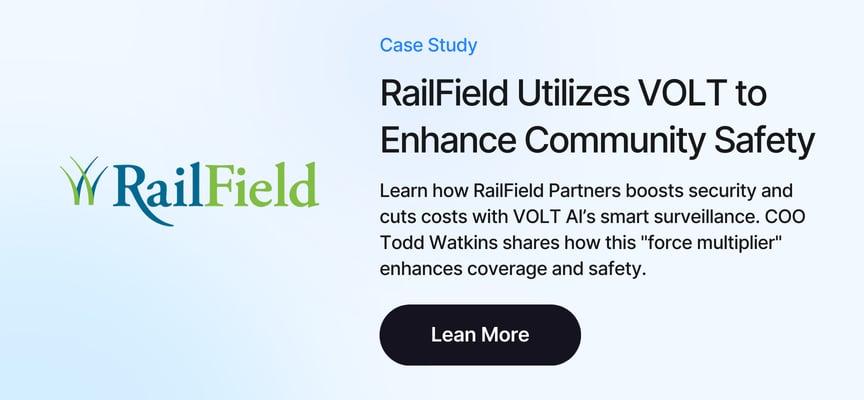Security is a top priority for property managers, especially those overseeing multi-family housing complexes and commercial properties. Outdoor surveillance cameras have become an essential tool, offering the ability to deter crime, monitor activity, and gather evidence when needed. However, the laws governing the use of outdoor surveillance cameras for the home are complex with details that vary widely depending on the location and specifics of your property.
This guide is designed to cut through the complexity and provide you with the essential knowledge you need to make informed decisions about outdoor surveillance, ensuring that your property is secure and legally compliant.
Navigating the Laws on Outdoor Surveillance Cameras for Home: Key Considerations for Property Managers
The legal landscape is a patchwork of federal, state, and local regulations, each with its own nuances and requirements. Property owners and managers must understand and comply with these laws to avoid legal trouble, fines, and reputational damage.
To ensure that your surveillance system is both effective and legally sound, carefully consider several key factors.
State and Local Regulations
Laws on outdoor surveillance cameras for homes can vary significantly from state to state and even city to city. Some states may have stricter privacy laws than others, while local ordinances may dictate specific rules about camera placement, signage, and data retention. Thoroughly research the laws on outdoor surveillance cameras that apply to your specific location to avoid legal consequences.
Privacy Concerns
Tenants and visitors have a reasonable expectation of privacy, and surveillance systems must be implemented in a way that respects these rights. Avoid placing cameras in areas where individuals would have a heightened expectation of privacy, such as bathrooms, changing rooms, or inside individual apartments. Many jurisdictions also prohibit recording audio, which can be considered more intrusive.
Signage and Disclosure
Transparency is key when complying with laws on outdoor surveillance cameras for the home. In most jurisdictions, it's mandatory to inform residents and visitors that they are being monitored. This can be done through clear signage posted in visible areas. Some laws may also require you to disclose the purpose of the surveillance, how the footage is used, and who has access to it.
Data Storage and Access
Laws on home outdoor surveillance cameras often dictate how long you can store surveillance footage and who is authorized to access it in order to prevent misuse of data while protecting individuals' privacy. Ensure that your data retention policies align with local laws and implement secure measures to restrict access to authorized personnel only.
Case Study: How VOLT AI Transformed Community Security
A prominent real estate investment firm faced a growing challenge familiar to many in the industry: rising crime rates and increasing security costs. As its portfolio of properties expanded, the company struggled to maintain adequate security coverage across multiple entry points and expansive outdoor areas. The company needed a solution that could enhance its security capabilities while ensuring strict adherence to the complex laws on outdoor surveillance cameras for the home.
VOLT AI emerged as the answer to their needs. By implementing VOLT AI's AI-powered video camera platform, the client was able to transform its security approach. The platform's AI-powered analytics features empowered client's security personnel to monitor multiple locations simultaneously, receiving real-time alerts for potential threats and significantly reducing response times.
After implementing VOLT AI, the client experienced a significant decrease in crime rates, a reduction in security-related expenses, and an enhanced sense of safety among their residents. The system's effectiveness even became a valuable marketing asset, attracting tenants who valued the added security measures.
Beyond Compliance with Laws on Outdoor Surveillance Cameras for Home: Maximizing the Benefits of Outdoor Surveillance
Adherence to laws related to outdoor surveillance cameras for the home is non-negotiable, but let’s also take a look at the benefits of surveillance. When deployed strategically and ethically, outdoor surveillance cameras can be a powerful tool for property managers, offering a range of advantages that enhance security, improve operational efficiency, and protect investments.
Proactive Security
The mere presence of cameras can discourage potential offenders, making your property a less attractive target. Furthermore, the high-quality footage captured can be used to analyze patterns and identify vulnerabilities, allowing you to proactively address security risks before they escalate.
With VOLT AI's advanced analytics and real-time alerts, you can take this proactive approach to security even further. Our platform empowers your security team to identify and respond to potential threats before they escalate, ensuring the safety of your residents and property. Schedule a demo to learn more.
Operational Efficiency
The applications of outdoor surveillance cameras extend beyond security. They can be used to monitor property conditions, identify maintenance needs, and track foot traffic patterns. This information can be used to optimize maintenance schedules, allocate resources more effectively, and improve overall operational efficiency. For example, monitoring foot traffic can reveal areas of high congestion, helping you make informed decisions about landscaping, lighting, and signage.
Liability Protection
In the unfortunate event of an accident or dispute, video footage can serve as critical evidence. Whether it's a slip-and-fall accident, property damage, or a disagreement between tenants, having a clear record of events can protect your property from lawsuits and help resolve conflicts.
Choosing the Right Solution to Ensure Compliance with the Laws on Outdoor Surveillance Cameras for Home: Factors to Consider
Selecting the right surveillance system is a critical decision for property managers, and compliance with laws on outdoor surveillance cameras for the home should be a top priority. While a wide range of options are available, it's essential to choose a solution that not only meets your security needs but also aligns with legal requirements.
Here are some key factors to consider:
Technology Features
High-resolution cameras are essential for capturing clear footage that can be used for identification and evidence. Look for systems that offer advanced features like motion detection, night vision, and remote viewing capabilities. Consider incorporating AI-powered analytics that can automatically detect suspicious activity, enhancing your security team's ability to respond promptly to potential threats.
Scalability and Integration
As your property grows and evolves, so too should your surveillance system. Choose a solution that is scalable, allowing you to easily add cameras and expand coverage as needed. Additionally, ensure that the system can integrate seamlessly with your existing infrastructure, such as access control systems and alarm systems. A well-integrated system can streamline operations and enhance security while simplifying compliance with relevant outdoor surveillance laws.
Cost-Effectiveness
Advanced systems like VOLT AI can provide significant savings by reducing the need for on-site security personnel, automating threat detection, and minimizing liability risks. The potential savings from reduced insurance premiums and legal fees can be very substantial.
Conclusion: The Future of Property Security and Laws on Outdoor Surveillance Cameras for Home
Property security is continually evolving, and laws on outdoor surveillance cameras for the home are no exception. As technology advances and privacy concerns remain at the forefront, property managers must stay informed and adapt their security strategies accordingly. The growing complexity of laws in this area underscores the need for comprehensive solutions that prioritize both security and compliance.
VOLT AI stands as a reliable partner for property managers. By leveraging cutting-edge AI technology and prioritizing compliance with the laws on outdoor surveillance cameras for the home, VOLT AI empowers property owners to create safer communities while protecting their assets and optimizing their operations.
Explore how VOLT AI can revolutionize your property security strategy and unlock the full potential of your surveillance system. Contact us today for a personalized demo and discover how VOLT AI can transform your property into a safer, more secure, and more efficient environment.
FAQs
Are there federal laws on outdoor surveillance cameras for the home that I need to be aware of?
While there isn't a single federal law specifically governing all aspects of residential surveillance, several federal laws may come into play depending on your specific circumstances. These include privacy laws like the Electronic Communications Privacy Act (ECPA) and the Video Voyeurism Prevention Act (VPPA). It's crucial to consult with legal counsel to ensure that your surveillance practices align with federal regulations.
Do I need to inform my tenants if I change the configuration or capabilities of my existing outdoor surveillance system?
Transparency and communication are vital when it comes to laws on outdoor surveillance cameras for the home. If you make significant changes to your surveillance system, such as adding new cameras, upgrading to higher resolution, or implementing facial recognition technology, it's advisable to inform your tenants of these changes. This helps maintain trust and ensures that everyone is aware of the scope of surveillance on the property.
Are there any specific restrictions on where I can place outdoor surveillance cameras for home on my property?
Generally, cameras should be positioned to monitor common areas and exterior spaces, avoiding areas where individuals have a heightened expectation of privacy, such as the windows of individual units, swimming pool areas, or private balconies.
Can I use footage from my outdoor surveillance cameras for purposes other than security, such as marketing or monitoring employee behavior?
While you can generally use footage for security purposes like investigating incidents or deterring crime, using it for other purposes—like marketing or employee monitoring—may require additional consent from those being recorded. It's essential to be transparent about how footage is used and to obtain any necessary permissions to avoid legal issues.


